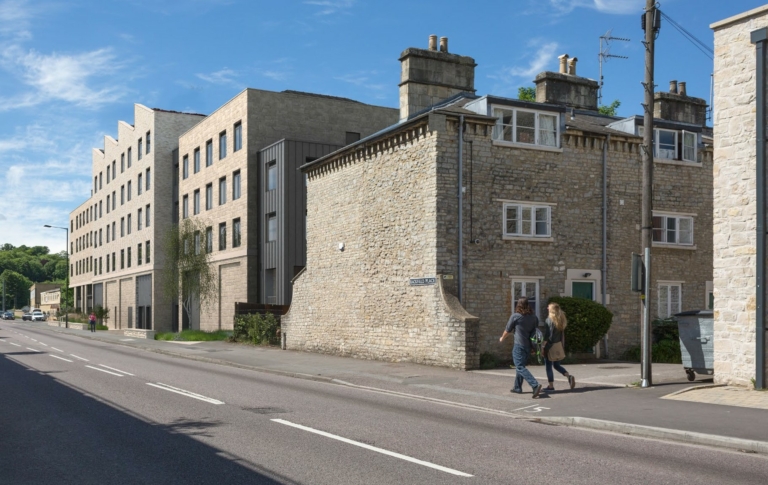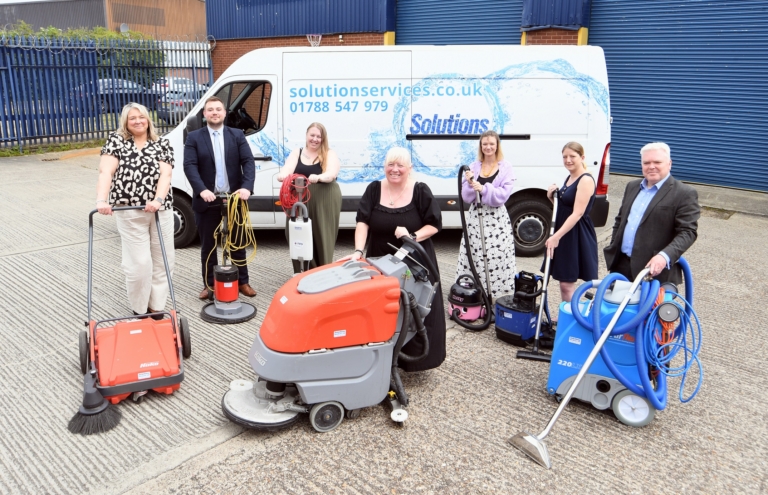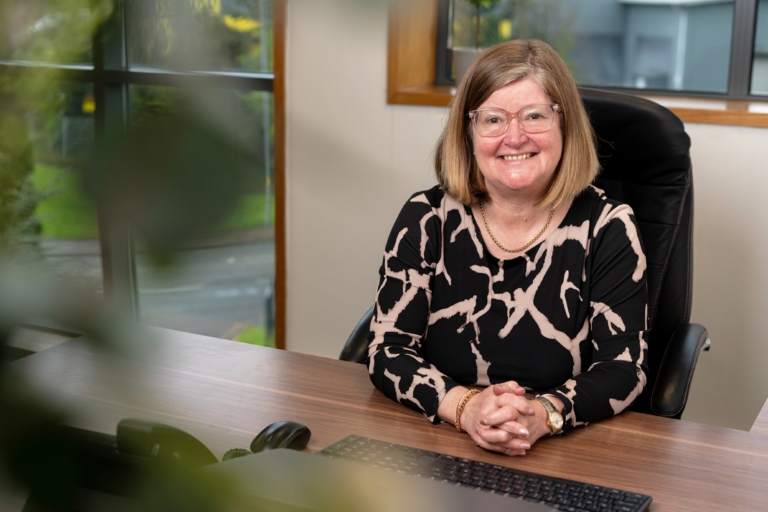Destination storytelling is the answer for the hospitality sector
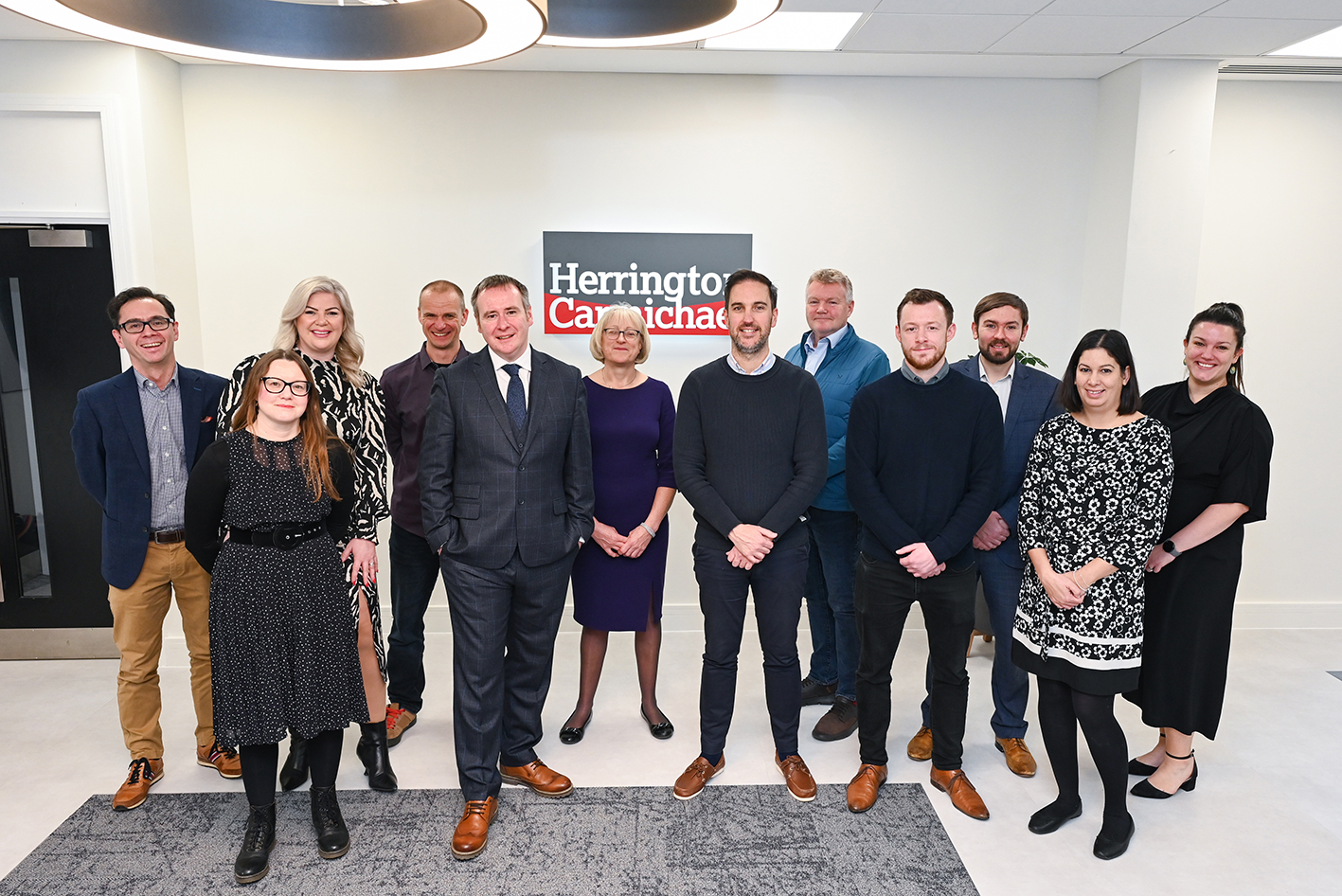
Byline: Stephen Emerson, Managing Editor.
“Whether you’re a B&B or a big hotel, you need to create a destination for the customer and bring in all the things around you to make it more appealing to visit”
Hospitality businesses must collaborate to create 'destinations' and embrace opportunities provided by new technology if they are to prosper in an increasingly uncertain post-Covid economy.
This was one of the main points heard at The Business Magazine’s hospitality roundtable held in partnership with legal firm Herrington Carmichael at its Farnborough offices and attended by key industry figures.
ROUNDTABLE PARTICIPANTS

Moderator: Stephen Emerson, Managing Editor at The Business Magazine
- Simon Numphud, Managing Director, AA Media
- Robin Hay, Director, Bennett Hay
- Katie Childs, Chief Executive, Chawton House
- Emily Simmons-Wright, Head of Venue Sales, Farnborough International Exhibition and Conference Centre
- Rachel Duncan, Partner, Herrington Carmichael
- Sherry Fitzgerald, Partner, Herrington Carmichael
- Cesare McArdle, Partner, Herrington Carmichael
- Darren Smith, Partner, Herrington Carmichael
- Kyle Wilks, Co-founder and CEO, Labl.IT
- Sarah Banks, Director of Sales, Leonardo Hotels Southampton Cluster
- Sam Sutton, Owner, New Forest Activities
- Sheryl Davis, Partner, Saffery

The sector must sell the strengths of locations and harness technology if it is to thrive

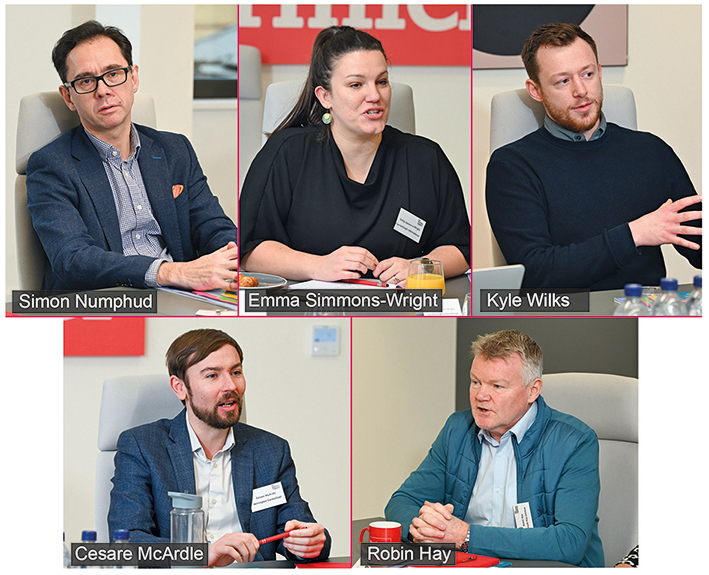
Simon Numphud, Managing Director of Basingstoke-based travel media company AA Media, said: “Every business has to create its own narrative to win business and no one can rest on their laurels. Whether you’re a B&B or a big hotel, you need to create a destination for the customer and bring in all the things around you to make it more appealing to visit. This gives the customer a clear view of what there is to do when they visit so that they can plan their trip better and instead of staying one night, stay for two.
“Consumer research shows that people are interested in the hyper local when they visit somewhere. They want to know everything about it, which I think is a big opportunity.”
This point was shared by Emily Simmons-Wright, Head of Venue Sales at Farnborough International Exhibition and Conference Centre, who said that there was demand from conference organisers to link up with nearby attractions.
She said: “We are working on our proposition as a destination for people who book trade shows or conferences with us over a number of days. We suggest visiting nearby attractions in the New Forest or Southampton.
“We have been working with Visit Hampshire and Tourism South East to help create this story.”
Harnessing new technology
Kyle Wilks, Co-founder and CEO of kitchen tech firm Labl IT, said technology could be used to automate mundane tasks and allow the industry to focus on service levels.
He said: “We need to look at the pieces within the industry that are easily automatable but don’t take away from the human element. Automation of the manual processes that people have to do day-in and day-out allows them to spend more time with customers.
“I think we are a long way off from Artificial Intelligence (AI) servers. People enjoy the personal experience of hospitality, and I don’t think that will ever change.”
Cesare McArdle, a Partner at Herrington Carmichael, agreed that people were central to hospitality and said that technology should be used to amplify the strengths of a hospitality business.
He said: “I don’t think the customer-facing experience will change, at least not in my lifetime. What you will get is people using AI to amplify the unique selling point of the business such as using it to generate a tailored menu.
“What Covid taught us is that flexibility is key to survival in business and AI can be used to predict trends and then order supplies based on that data.”
Front of house automation solutions have been around for years, according to Robin Hay, a Director at London-based bespoke caterers Bennett Hay, but they had not captured a mass market.
He said: “There have been a number of AI solutions for reception desks that have come on the market, even before Covid, however they are not getting traction yet. People using buildings, I feel, still prefer to be welcomed by a human being. I thought it would have a bigger market share by now, however it may be coming.”
Simon Numphud agreed that the industry had advanced its use of technology in recent years, however many companies were operating in technology ‘silos’ that had limited their ability to collaborate.
He said: “It is all about connectivity and the ability of hospitality businesses applications to talk to one another because then you can collate all of the data and analyse it properly. If you have different applications that don’t talk to each other, that creates a very clunky guest experience.
“One of the problems that the industry has to overcome is having a holistic approach to creating a seamless guest journey.”
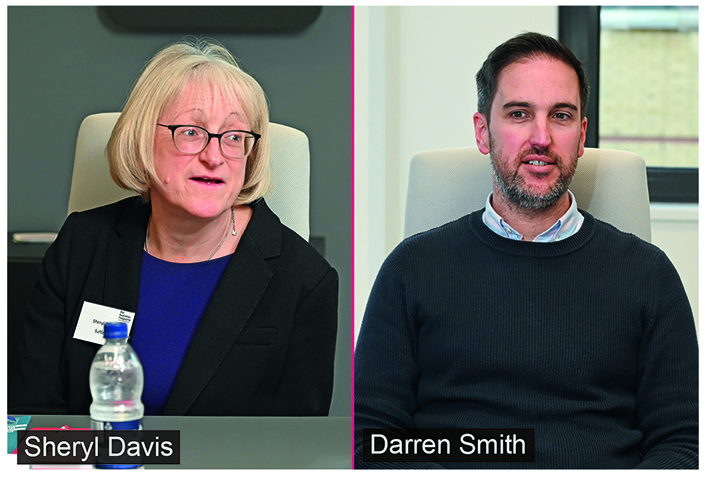
Access to capital in order to make technology investments was an obstacle for many hospitality businesses according to Sheryl Davis, a Partner at Saffery, the chartered accountants, tax and business advisers in High Wycombe. However, there are favourable capital allowances available to provide tax relief on any such investment.
She said: “Companies struggle to make the change when they are already set up, as it can be harder to modernise existing systems than introduce new ones. As a result, long established hospitality businesses may find themselves left behind newer entrants to the industry who bring the latest tech with them.”
Sheryl added: “We have seen a big change in the ownership structure within the hospitality industry. It has moved away from lifestyle ownership towards hospitality being viewed as more of an investment opportunity.
“Your average lifestyle owner suffered a lot during Covid and many have moved out of the industry. This has created a lot of opportunities for creative entrepreneurs to launch more bespoke experience outlets.”
Many companies have benefitted from collecting and analysing data sources which has allowed them to make better business decisions. The roundtable agreed that the hospitality industry had been slow to embrace the opportunities afforded by big data.
Kyle Wilks said: “I think the hospitality industry has been a bit behind the curve when it comes to using big data for strategic effect.This is one thing that we could get better at in terms of analysing trends and making informed decisions based on the data.”
Darren Smith, a Partner at Herrington Carmichael, said the hospitality industry was not alone in failing to take advantage of the data opportunity.
He said: “I work across different industries and everyone recognises the need to analyse big data, draw assumptions and work from that. Everyone recognises this but people are struggling to do this.”
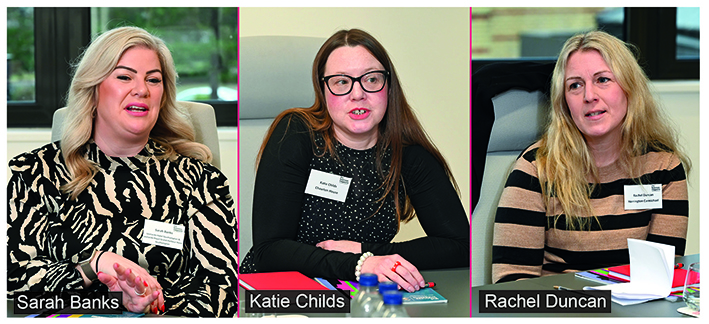

The importance of sustainability
With global warming becoming more apparent, it is little surprise that the hospitality industry is responding to increased consumer demands for a greener offering.
Sarah Banks, Director of Sales at Leonardo Hotels Southampton Cluster, said both consumer and business customers were keen to know her organisation’s green credentials.
She said: “We have seen a real growth in global demand for sustainable travel arrangements.
We have to be able to answer every question our global clients ask. We have really focused on our green credentials across the estate, not only for corporate customers to use us but for the environment as well.”
The pressure on large corporates to off-set their emissions through green initiatives applied through ESG (environmental, social, and governance) regulation has also increased in recent years.
Katie Childs, Chief Executive of country house and arts venue Chawton House in Hampshire, said that while support for corporations was welcome, it needed to be more joined up and targeted.
She said: “Because we run an estate, the visible effects of climate change are one of the things visitors see. We get support from corporate organisations because we are a charity. There is a lot of will from companies to help, however it is entirely through the provision of new trees. I applied for 120 trees through a corporate scheme and 1,500 trees turned up.
“Corporate companies need to work closer with donors to make sure help is targeted, implementable and will make a difference.”
Rachel Duncan, a Partner at Herrington Carmichael, said that it was vital that hospitality companies had a clear ESG strategy to attract investment and revenue. “Larger corporates are increasingly looking for prominent ESG structures within businesses in which they are investing or partnering. If you’re a leisure and hospitality business that can show evidence of your policy, it will be beneficial to you.”
Simon Numphud said the consumer push towards sustainability was also tied into more interest in the wellness sector.
He said: “As consumers, we have all become more conscious of eating better. Wellness is tied into this and is one of the biggest growth areas of the market. Businesses tapping into this opportunity will do well.”
Impact of Covid
The impact of the pandemic has left a legacy on the industry, according to roundtable participants, with many arguing that aspects of the industry have been fundamentally reshaped.
Saffery’s Sheryl Davis said that the pressures of Covid had caused many owners to leave the trade.
She said: “We have seen a big change in the ownership structure within the hospitality industry away from lifestyle ownership, towards it being viewed as more of an investment.
“Your average lifestyle owner suffered a lot during Covid and many have made the decision to move out of the industry. This has created a lot of opportunities for creative entrepreneurs to come with experience outlets.”
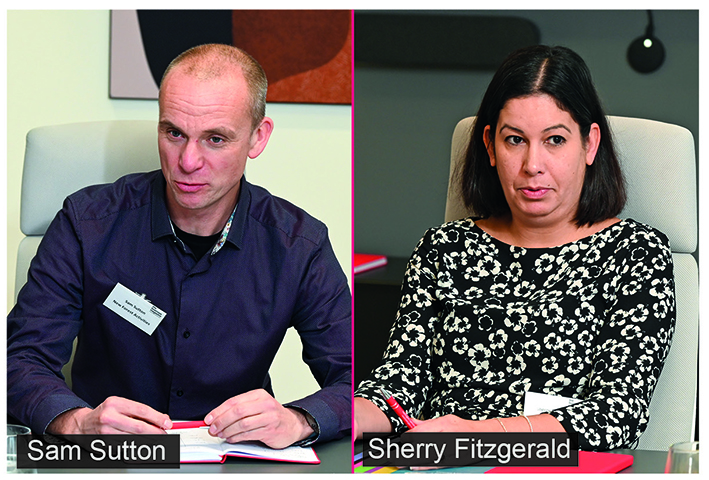
Sam Sutton, owner of Hampshire outdoors centre New Forest Activities, said he pivoted his business model during Covid towards smaller groups.
He said: “We had to change our business model and go out in multiple smaller groups, as this was part of the conditions of being able to open. We found that customers actually really loved this and the fact that they had a really bespoke experience.”
Rachel Duncan of Herrington Carmichael said that many hospitality businesses were looking to free up money held in property.
She said: “The leisure and hospitality industry is still under huge cost pressures from Covid.
“The cost-of-living crisis is affecting consumer demand with high energy and material prices also putting pressure on hospitality businesses. It has never been more essential for businesses to practise careful cost- management, particularly when it comes to buildings. Increasingly businesses are divesting non-profitable assets and focusing on parts of the business that are more profitable.
“People within the industry are also focused on developing stronger partnerships with suppliers rather than it being based strictly on demand and supply.”
Cesare McArdle of Herrington Carmichael said that this increased focused on partnerships in the industry was noticeable during the Covid period.
He said: “There wasn’t very much to enjoy about Covid but where I was working with the hospitality industry, the one thing that I did enjoy was the collaboration. If a company had breached a contract, the reaction during that time would be how do we fix this rather than going down a legal route. There was a feeling that we were in this situation together and we have to help each other through it.
“Now we are out of the other side of Covid, the clients we work with have ensured that they have up-to-date terms and conditions which are reflective of the way their business works and are flexible enough to deal with these unforeseen circumstances “
Robin Hay of Bennett Hay said city centre hospitality operators were struggling with the effects of hybrid working on footfall.
He said: “There are a number of changes happening with London. You have HSBC moving out of Canary Wharf and into a smaller space as they are adapting to how people work. There is less of a requirement for floor space.
“We are seeing people come back into the office on Tuesday, Wednesday and Thursday with Monday and Friday being the quieter days. We are seeing a rise in trade on Mondays, however Friday remains a particularly tough nut to crack.”
Skills shortage
The shortage of hospitality workers is affecting every panellist’s business, and the problem can only be solved by making the career more attractive.
Sarah Banks said: “The hospitality industry is not a career choice like being a lawyer or a pilot. But there are so many options. You can move into HR, sales or be an executive head chef at a top London hotel. There are so many opportunities, but you need to stick at it and get the passion for the industry you work in and work your way up.”
Darren Smith of Herrington Carmichael said the industry needed to promote itself as a long-term career option for school leavers.
He said: “One of the key issues is promoting the idea that coming into the industry can be a long-term thing. The industry is used to casual labour coming in and then leaving to go into other fields. How do we change that so people consider staying within the industry?”
Kyle Wilks echoed this point and said that the sector needed to get better at telling its own story.
He said: “Hospitality has to work on how to tell its story and share how people enjoy working in the industry. If we as an industry can tell exciting and engaging stories, that will help with the recruitment side of things.”
In April this year, the government increased the salary threshold for the skilled worker visa route to £38,700. This has led to fears that the shortage of workers in the sector will only worsen.
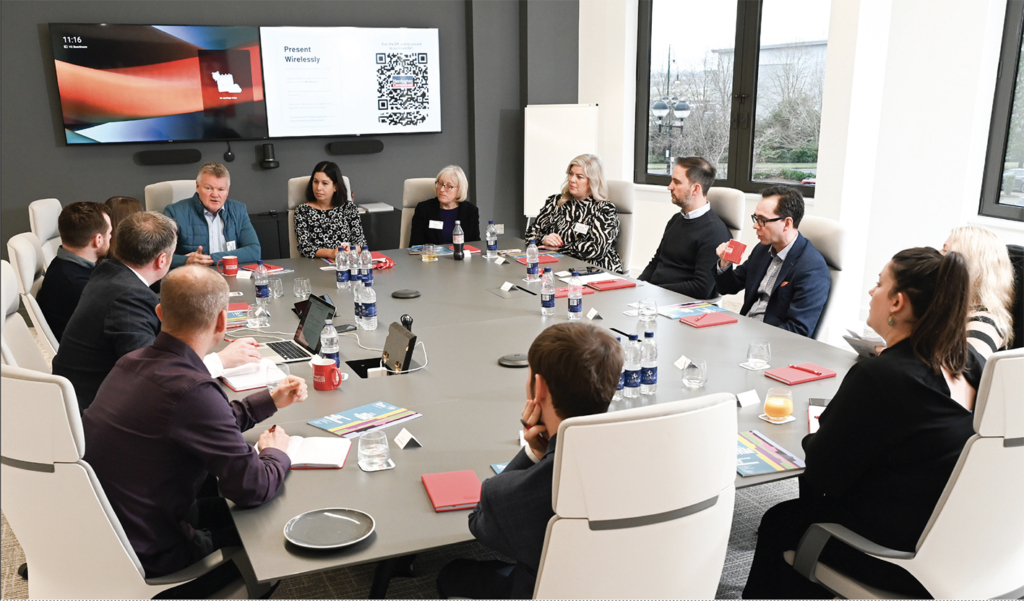
Sherry Fitzgerald said: “Businesses are already struggling with recruitment and these will be made worse by salary thresholds going up.
“They’re not going to be able to rely on that sponsorship route, so they’re going to be even more important now that they do become more appealing to the younger generation.”
The hospitality industry has long faced competition for younger workers particularly from retail, however Katie Childs said providing youngsters with career opportunities was vital.
She said: “We were really struggling to recruit to our kitchen and our tearoom. To attract staff, I had to consider what we can offer that Sainsbury’s and Waitrose can’t because the answer isn’t going to be money.
“We structured the jobs as general assistance where we trained them in how they could support the whole operation. We discussed what their long-term interests were for study or work. We gave one experience in communications and another in performing arts.
“We then looked at how we could support them and give them opportunities that they would not get anywhere else. The trade-off is that they have to work in the kitchen or the tearoom depending on where their skill sets lie.”












